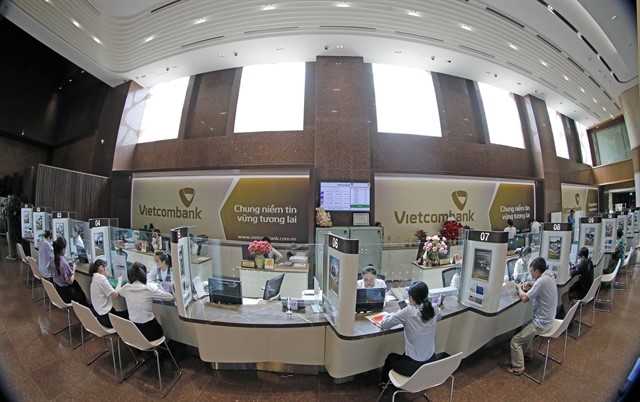Commercial banks have requested the State Bank of Vietnam (SBV) consider a payment extension in a bid to support economic recovery.

Commercial banks have requested the State Bank of Vietnam (SBV) consider a payment extension in a bid to support economic recovery, said industry insiders, citing the current challenging economic situation and showing concerns over businesses' ability to meet the payment deadline, which has been set on June 30, 2024.
The banks said an additional six months or even another year would be welcomed by most businesses, as well as the banking sector.
According to a report by Vietcombank, one of the largest banks in the country, the bank's bad debts have reached VNĐ12.445 trillion or over US$500 million, 0.98 per cent of its outstanding loans, an increase of VNĐ4.635 trillion compared to the end of 2022. Among these, debts with potential capital loss (Group 5) increased from VNĐ6.623 trillion to VNĐ7.841 trillion.
TPBank, similarly, has reported VNĐ4.2 trillion in bad debts, bringing the bank's bad debt ratio from under 1 per cent at the end of 2022 to 2.04 per cent by the end of 2023. Techcombank, meanwhile, reported VNĐ5.999 trillion in bad debts, nearly double the figure recorded at the end of 2022. Sacombank reported VNĐ10.984 trillion in bad debts in 2023, a 155.5 per cent increase compared to the beginning of the year.
Other commercial banks have also voiced concerns over rising bad debts as Bac A Bank reached nearly VNĐ914 billion, a 78 per cent increase; NCB reached VNĐ16.469 trillion, a 92.5 per cent increase; MB reached VNĐ9.805 trillion, a 94.9 per cent increase; ACB reached VNĐ5.887 trillion, a 93.3 per cent increase; and MSB hit VNĐ4.281 trillion, a 106.9 per cent increase from the end of 2022.
Industry experts said the current challenging economic situation and difficulties faced by businesses severely affect their ability to meet debt obligations. As there are no shortcuts to resolving old bad debts, a significant number of newly classified bad debts, which should be expected on June 30 this year, will put tremendous pressure on the country's financial sector, as well as businesses.
In addition, the total value of real estate mortgages currently accounts for about 70 per cent of the total collateral, and in some banks 80-90 per cent. This has resulted in real estate being the most often auctioned asset by banks, which has not been well-received as the real estate market has not fully recovered.
Phạm Quang Thắng, deputy director-general of Techcombank, said the bank's bad debt ratio at the end of January this year was 1.2 per cent, roughly the same figure recorded last year. As the June deadline approaches, customers have been making repayments. However, the bank fully supports an extension to give businesses both additional time and room to manoeuvre.
Hồ Nam Tiến, vice chairman and CEO of LPBank said many of his customers have expressed concerns over difficulties in meeting the June deadline.
Similarly, representatives from various commercial banks have voiced their support for an extension of six months to a year to allow both commercial banks and businesses more time to resolve their issues.
Nguyễn Quốc Hùng, secretary-general of the Vietnam Bank Association (VBA), said credit room this year will likely not be an issue, but banks must find good customers while strengthening their risk control measures, especially for consumer loans.
"We think it'd be a good idea to extend the deadline by six months to a year in this difficult time, while the sector focuses on how to reduce rising risks from bad debts," he said.
The central bank said the June deadline was implemented to ensure the stability and safety of the country's banking sector. However, the SBV said it will conduct further review and seek additional feedback on a potential extension.
Deputy governor of the SBV Đào Minh Tú said, while the central bank acknowledges difficulties faced by both the sector and businesses, extending the June deadline remains a decision that requires careful consideration. In the meantime, he advised commercial banks to exercise caution while giving priority to Việt Nam's key economic sectors and supporting the recovery of businesses. — VNS





